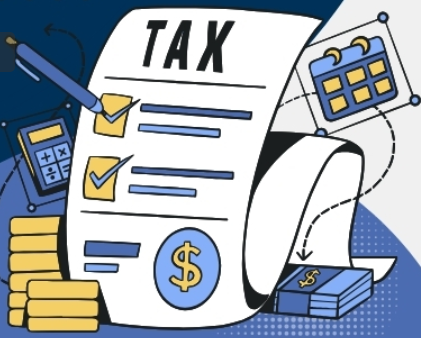
Tax season can be stressful, but for many small businesses, the pressure is made worse by avoidable errors. From missing deadlines to misreporting income, these mistakes often lead to penalties, audits, or lost deductions. Many businesses wait too long to prepare or rely on incomplete records, which creates problems during filing. With consistent habits and guidance from a qualified tax consultant, most of these issues can be fixed or prevented altogether.
Below are five of the most common small business tax mistakes and how to avoid them.
1. Misreporting Income or Mixing Personal with Business
Accurate income reporting is essential. One of the most common issues during tax season is incorrectly documenting business earnings, especially when personal and business finances are mixed. This mistake leads to unclear records, potential red flags, and missed deductions. A separate business bank account and updated transaction logs help prevent confusion. This is a core practice in bookkeeping and accounting and supports clear documentation for tax purposes.
2. Forgetting Quarterly Estimated Payments
Businesses that expect to owe more than $1,000 in taxes must usually pay quarterly. Failing to do so may lead to IRS penalties and interest. Many owners overlook this responsibility, especially if revenue fluctuates. A good rule is to set calendar reminders and use previous returns as a guideline.
3. Poor Recordkeeping Throughout the Year
Tax season becomes more difficult when records aren’t updated regularly. Waiting until April to sort through receipts or review income reports leads to missed deductions and errors. Business owners in San Jose and across California benefit from monthly check-ins. Using accounting software or partnering with a CPA professional keeps records current. Consistency makes it easier for a tax consultant to identify patterns and provide guidance on deductions or reporting.
4. Overlooking Business Deductions
Many small businesses miss out on tax-saving opportunities by not tracking deductible expenses. Common examples include software subscriptions, home office internet, and mileage. These expenses are only deductible when documented properly. A detailed expense log, kept throughout the year, helps ensure every eligible cost is claimed. This strategy is especially effective when paired with business tax services or guidance from a certified public accountant near you.
5. Filing Late or Under Pressure
Rushing to meet deadlines often results in mistakes. Businesses that delay gathering documents or estimating totals are more likely to make errors. Late filing can also lead to penalties, even if the return is accurate. Setting internal deadlines, preparing documents early, and consulting a tax advisor helps create a smoother process.
Preventing Mistakes with Nidhi Jain CPA
At Nidhi Jain CPA, small businesses receive clear, strategic support to reduce filing mistakes and improve year-round tax preparation. Whether you’re seeking help with bookkeeping, business tax filing in the Bay Area, or simply need clarity from a qualified tax consultant, avoiding errors starts with proactive planning. Build smarter habits and reduce tax-season stress with consistent support.
For more tax tips and insights, visit our blog.




